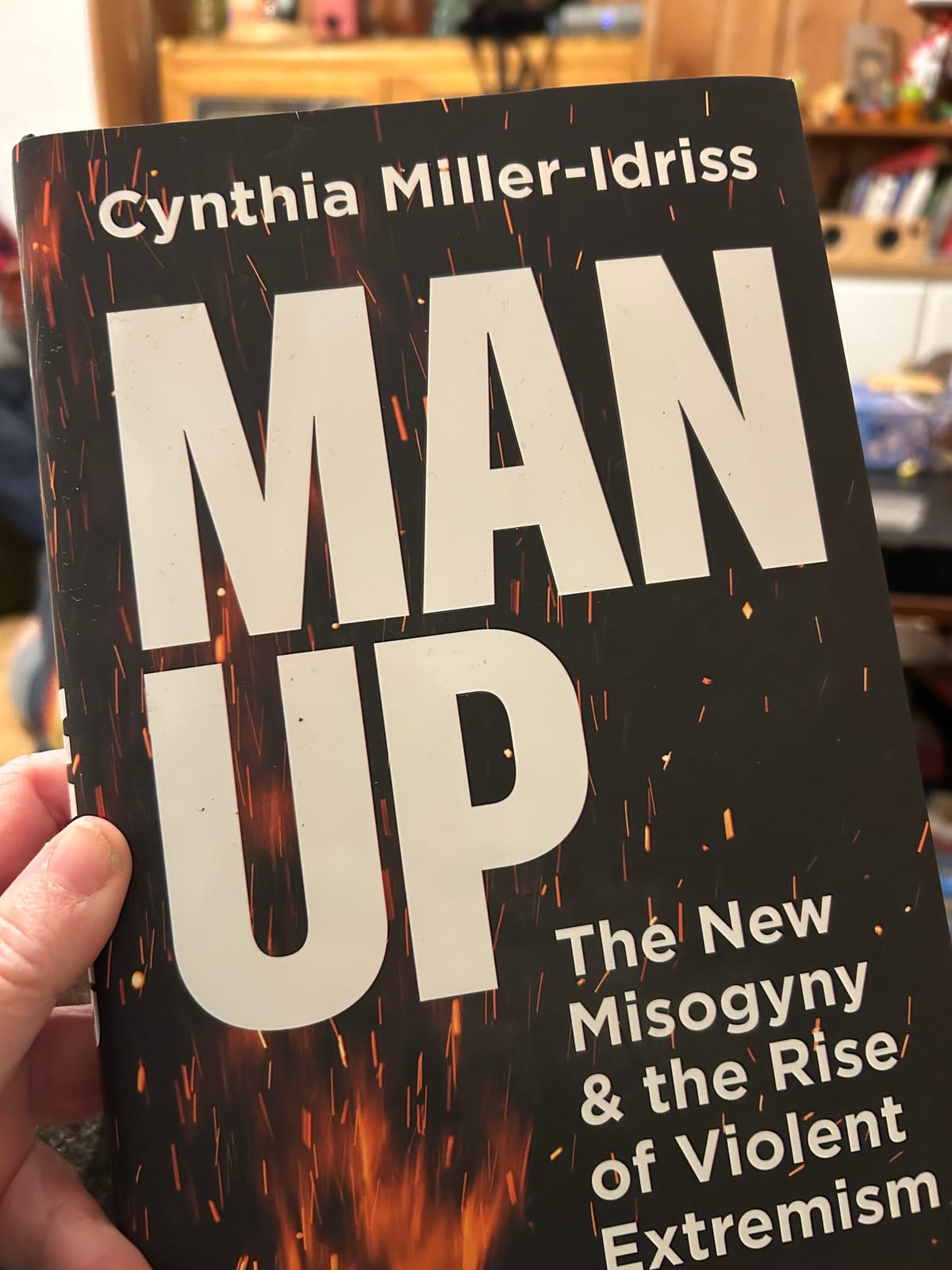on hate, and the work ahead

Last week at the invitation of a friend of mine, l attended a networking discussion and an evening book launch hosted by a really interesting research partnership at Carleton University. They were hosting a conference of researchers on Hate, Conspiracy Theories and the challenge to democracy, and the public component of it was a lecture by Cynthia Milker- Idriss, an expert on hate and extremism and the author of a new book on misogyny and violent extremism.
Can I really say that I enjoyed an event that laid bare the stark reality of a rising far-right extremist movement, fueled by the manosphere and normalized by dog whistling politicians and a corporatized media? Not so much. It’s kind of terrifying. But I did appreciate and this event and look forward to reading the book.
The author’s lecture was a very brief overview of the contents of her book, which explores the intersections of misogyny, anti-semitism, mass shootings and other manifestations of violent extremism. As someone who has worked in the trenches of feminist and human rights advocacy over the last couple of decades and has seen the rise of anti-gender movements and their impact on decision makers at the highest level, it wasn‘t much of a surprise. But this is not the kind of validation that feels particularly good.
Sure, it was validating. But in a way that made me feel more of a sense of urgency than ever before. The stakes are high, and the cost of inaction cuts deep.
What I appreciated most were the thoughtful questions from the audience members. Clearly many people in Ottawa are deeply concerned about the rise of violent extremism, its deep roots in misogyny and the normalization of harmful narratives echoed by politicians and other public figures.
We need to have brave conversations with the people we love, the people we work with, the people we see every day. We also need leaders and organizations to think hard about their priorities, strategy and communications tactics.
How do we meet people where they are at when they’ve (perhaps unwittingly) nudged themselves closer to the far right, accepting conspiracy theories or dog whistles?
How do we do this without erasing the harm to marginalized folks or making them feel thrown under the bus?
Shame is not an effective motivator; it shuts down conversation and pushes away people who may not fully comprehend the context of impacts of ideas, words and behaviour.
Setting aside important principles and values like equity, inclusion, justice and human rights in order to connect with people who have succumbed to the rhetoric of fear, anger and division is an equally problematic approach. These things are not add ons, nice-to-haves or something to be put off until the “real” priorities are achieved, especially not for the people who live with injustice and discrimination every day.
It shocks me how quickly the gains we have made can wither away - not just the tangible wins via legislation and practice, but the changes in attitude, the public discourse, the sense of what is acceptable and unacceptable in contemporary society.
We need to take the rise of authoritarianism more seriously and that starts with understanding what is happening and what’s at stake.
Friends, we have work to do.



